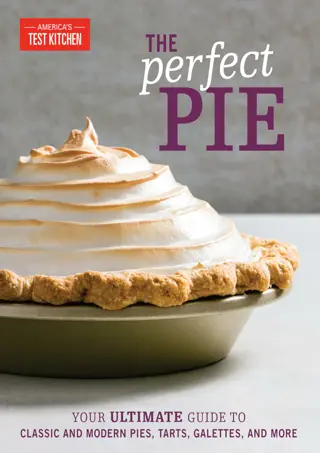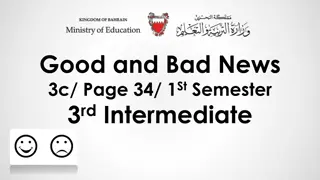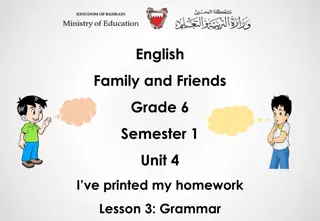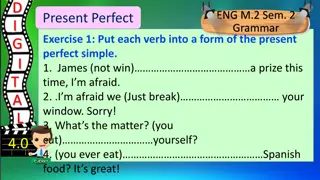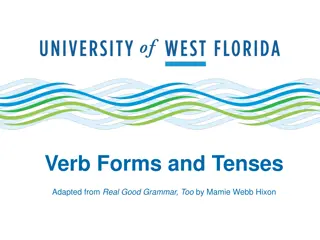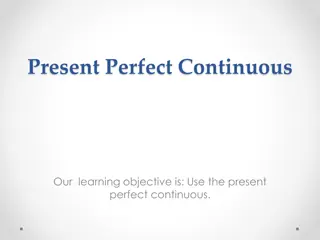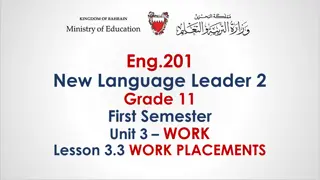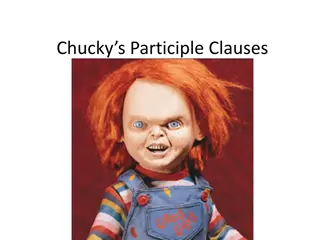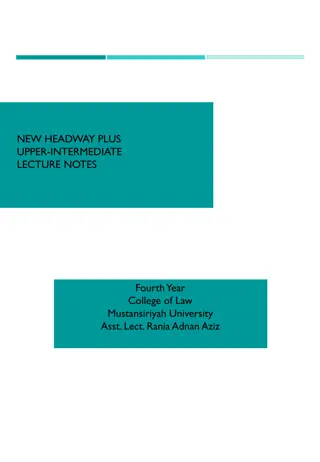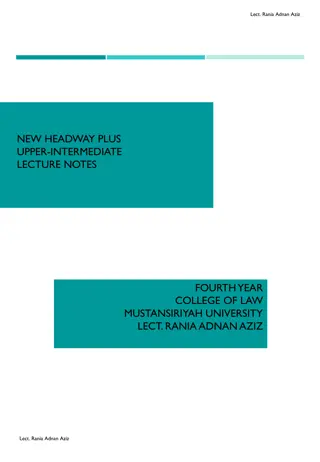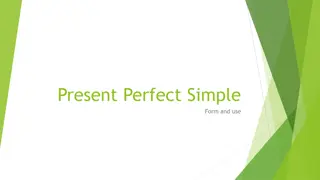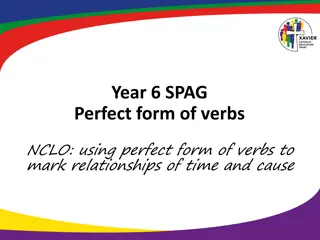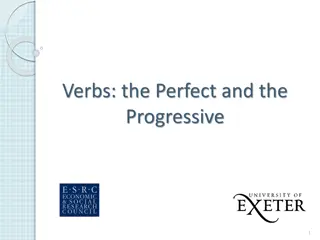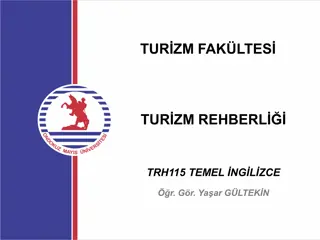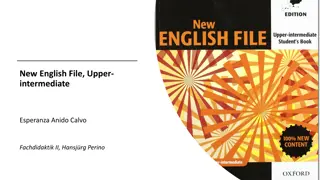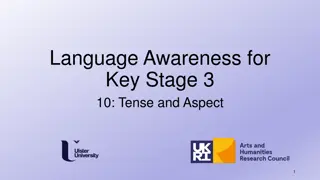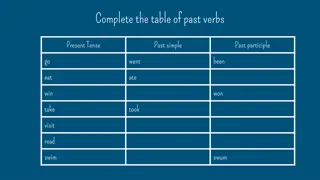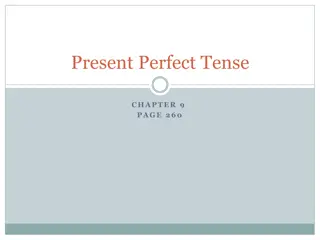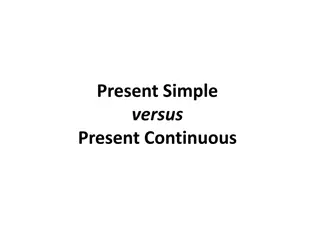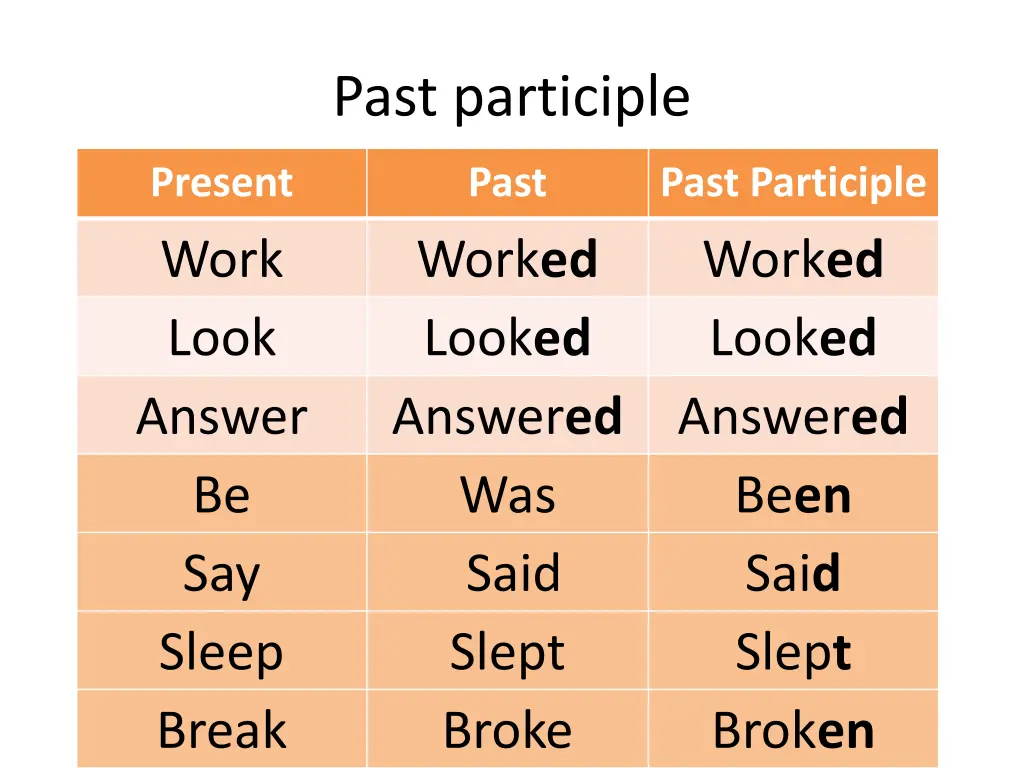
Mastering Present Perfect Tense: Usage, Formation, and Examples
Enhance your understanding of the Present Perfect tense through detailed explanations, examples, and exercises. Learn when and how to use it, forming questions, making negatives, and more. Improve your grammar skills with this comprehensive guide. Perfect for English learners seeking clarity on this essential aspect of language.
Download Presentation

Please find below an Image/Link to download the presentation.
The content on the website is provided AS IS for your information and personal use only. It may not be sold, licensed, or shared on other websites without obtaining consent from the author. If you encounter any issues during the download, it is possible that the publisher has removed the file from their server.
You are allowed to download the files provided on this website for personal or commercial use, subject to the condition that they are used lawfully. All files are the property of their respective owners.
The content on the website is provided AS IS for your information and personal use only. It may not be sold, licensed, or shared on other websites without obtaining consent from the author.
E N D
Presentation Transcript
Past participle Present Work Look Answer Be Say Sleep Break Past Past Participle Worked Looked Answered Been Said Slept Broken Worked Looked Answered Was Said Slept Broke
Fill in the blanks Past Past Participle Present .. Eat Wish Be = Is/ are/ am Study Watch .. was/were .. been .. . ..
Perfect Present P.P Form: Subject + Has + Past Participle Have
HAVE OR HAS ? IF THE SUBJECT * HAS/HAVE PAST PARTICIPAL EXAMPLE HE SHE IT HAS The boy has eaten lunch. HE HAS WE THEY YOU We have seen this film. HAVE The students have taken the lesson.
The Present Perfect is used When something has just happed, it just finished I have already eaten my lunch When we don t wish to tell the time I have completed my graduation. When an action happened during a period that hasn t finished. You have arrived late to class three times this month. To ask about an experience Have you ever fallen in love?
The present perfect is often accompanied with Just / already / yet Just Already Yet When and action or an activity has just finished When the sentence is positive When it s a negative or a question
JUSTALREADYYET Something just finished (+) Positive Already She has already eaten her dinner. .. (-) Negative / Question ? Yet Just I have just called my friend. Tom has just finished the race. The mail has not arrived yet. (-) Has the mail arrived yet?
Making the Present Perfect Negative The subject + has/have+ not + P.P. The mail has arrived . The male has not arrived.
Present Perfect Forming Questions 1-Have/Has + the subject + Present perfect + rest ? She has eaten her lunch. Has she eaten her lunch ? Yes, she has . / No, she has not. 2-Question word (WH) + have/has + the subject + present perfect + rest? She has eaten her lunch at home. Where has she eaten her lunch?
For vs. Since For =period of time Since = a starting point , a point in time when something started
For vs. Since For To measure the duration of something How long it lasts It has a start and an end For six minutes For one year For seven days For a century For two hours Since A time or date that started in the past and continued until now. Since 2017 /1999/2020 Since 9 o'clock Since Saturday Since I graduated Since January Since you were born
Past simple vs Present perfect Indefinite time / not mentioned We have visited Rome. present perfect Describes UNFINISHED time We have been living in Rome since 2018. (we are still living there time is unfinished) 1- Definite time is mentioned We visited Rome in 1988. past simple 2-Express FINISHED time We lived in Rome from 1990 to 1993. (we don t live there anymore time is finished) Refers to life experience or results WE have already seen this film twice . Have you ever seen a whale ? 3- Indicates a series of finished actions We cleaned the room and then went to bed.

